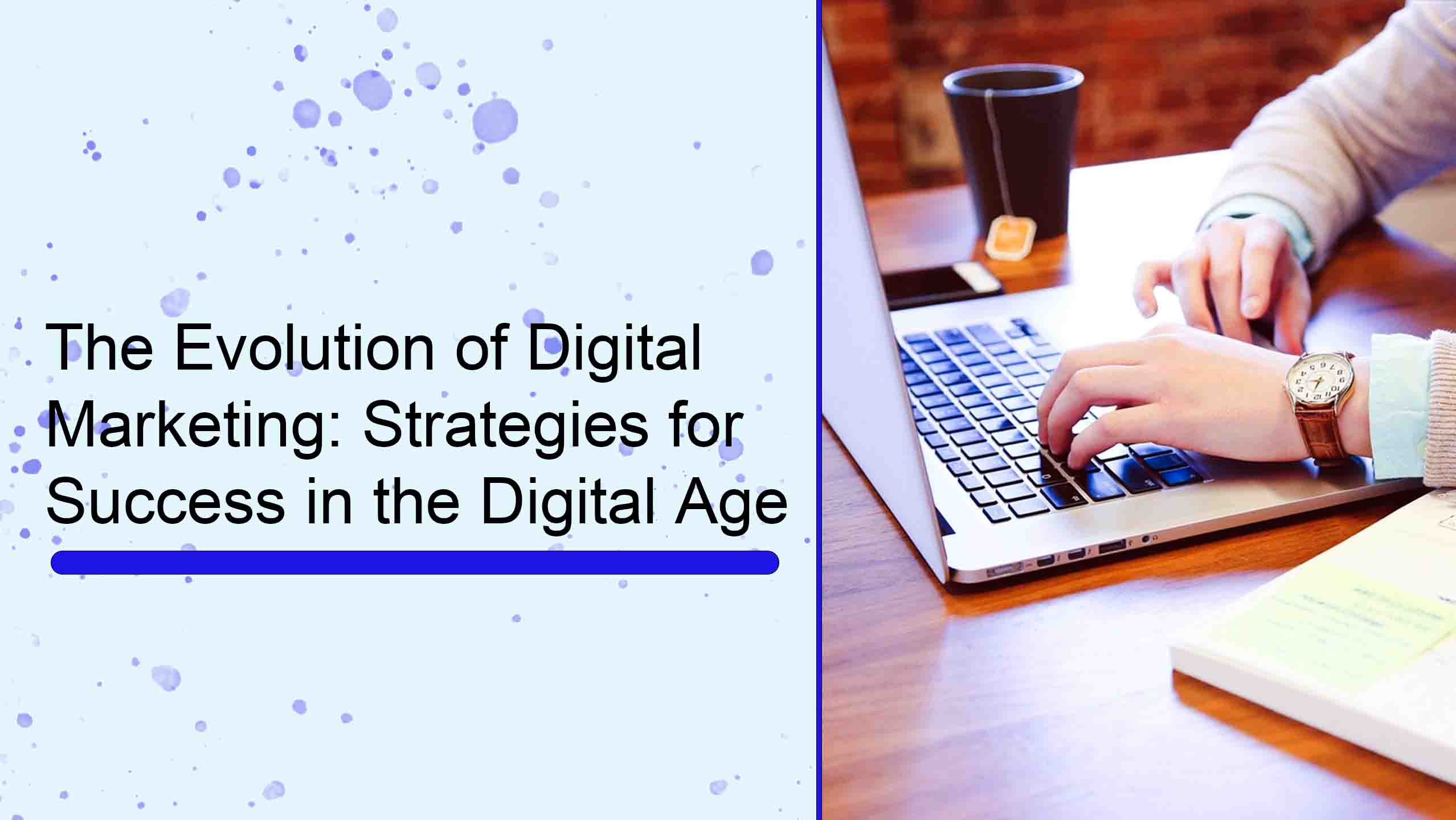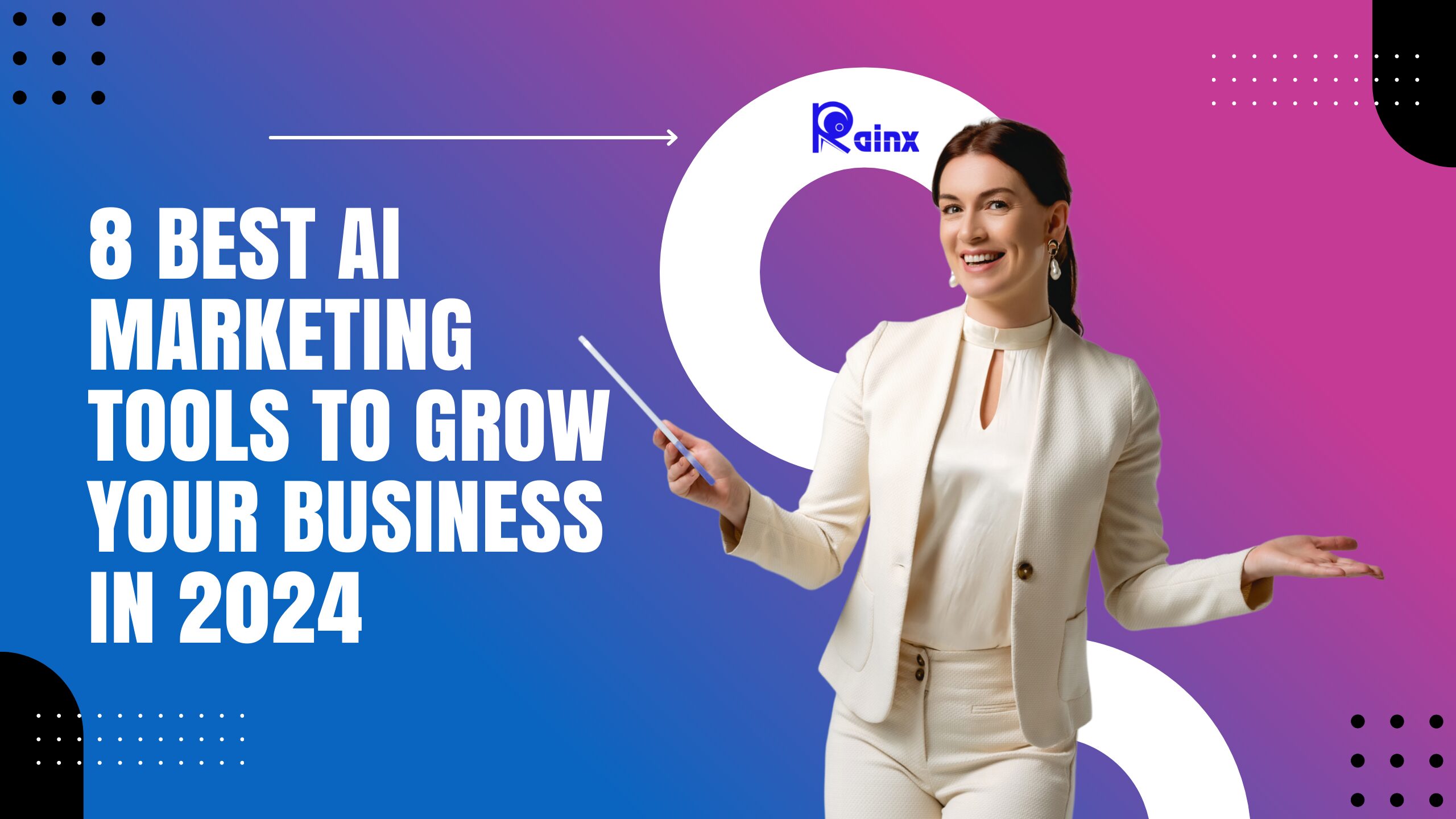The Evolution of Digital Marketing: Strategies for Success in the Digital Age
Introduction
In the fast-paced world of business, staying ahead of the curve is crucial for success. In recent years, the landscape of marketing has undergone a profound transformation with the rise of digital technologies. This shift has given birth to an era where businesses no longer rely solely on traditional advertising methods but have embraced the vast opportunities offered by digital marketing. In this comprehensive guide, we will explore the evolution of digital marketing and delve into effective strategies to navigate the dynamic digital landscape.
The Digital Marketing Revolution
1. **From Traditional to Digital: A Paradigm Shift**
The traditional marketing methods, such as print ads and television commercials, while still relevant, have taken a back seat to the digital revolution. The accessibility and widespread use of the internet have empowered businesses to connect with their audience on a global scale. Digital marketing, encompassing a range of online channels, has become the cornerstone of modern promotional efforts.
2. **The Power of Data: Analytics Driving Decision-Making**
One of the major advantages of digital marketing is the ability to collect and analyze data. Through tools like Google Analytics, businesses can gain insights into consumer behavior, preferences, and engagement metrics. This data-driven approach allows for more informed decision-making, enabling marketers to tailor their strategies for maximum impact.
3. **Social Media: The New Marketing Playground**
The rise of social media platforms has redefined how businesses interact with their audience. Platforms like Facebook, Instagram, Twitter, and LinkedIn have become invaluable tools for building brand awareness, engaging with customers, and even driving sales. Successful digital marketing strategies often include a robust social media presence that aligns with the brand’s identity.
Key Components of Digital Marketing
1. **Search Engine Optimization (SEO): Enhancing Visibility**
SEO is the backbone of digital marketing, focusing on optimizing a website’s content to rank higher in search engine results. A well-executed SEO strategy ensures that your business is easily discoverable by potential customers, increasing organic traffic and establishing credibility.
2. **Content Marketing: Creating Valuable Connections**
Content is king in the digital realm. Quality content not only attracts and engages the audience but also plays a pivotal role in SEO. Whether through blog posts, videos, or infographics, a compelling content marketing strategy can position your brand as an authoritative voice in your industry.
3. **Email Marketing: Personalization and Automation**
Email marketing remains a potent tool for nurturing leads and retaining customers. With the ability to personalize content and automate campaigns, businesses can build strong relationships with their audience, driving conversions and brand loyalty.
4. **Pay-Per-Click (PPC) Advertising: Instant Visibility**
PPC advertising allows businesses to bid for ad placement on search engines. This model ensures instant visibility, as advertisers only pay when users click on their ads. Well-crafted PPC campaigns can deliver targeted traffic and measurable results.
5. **Influencer Marketing: Leveraging Social Authority**
Collaborating with influencers who have a significant following in your niche can amplify your brand’s reach. Influencer marketing leverages the trust and authority established by influencers, creating authentic connections with their audience.
Navigating the Digital Marketing Landscape
1. **Understanding Your Audience: Personas and Segmentation**
Successful digital marketing begins with a deep understanding of your target audience. Developing buyer personas and segmenting your audience allows you to tailor your strategies to address specific needs and preferences.
2. **Mobile Optimization: Reaching Users on the Go**
With the prevalence of smartphones, optimizing your digital marketing efforts for mobile devices is non-negotiable. Responsive design, mobile-friendly content, and app-based campaigns ensure that your brand remains accessible to users on the go.
3. **Video Marketing: The Rise of Visual Content**
Video content has become a dominant force in digital marketing. Platforms like YouTube, TikTok, and Instagram thrive on visual storytelling. Integrating video into your marketing strategy can captivate your audience and convey your message with impact.
4. **Chatbots and AI: Enhancing Customer Interaction**
Artificial intelligence and chatbots have revolutionized customer interactions. These tools provide instant responses, streamline customer support, and gather valuable data for improving user experience.
5. **Ephemeral Content: FOMO Marketing**
Ephemeral content, such as Stories on platforms like Instagram and Snapchat, creates a sense of urgency and exclusivity. Harnessing the fear of missing out (FOMO) can drive engagement and prompt immediate action from your audience.
Overcoming Challenges in the Digital Realm
1. **Privacy Concerns: Navigating the Data Landscape**
With increasing awareness about data privacy, businesses must navigate this terrain cautiously. Implementing transparent data practices and ensuring compliance with regulations such as GDPR is essential to building trust with your audience.
2. **Adapting to Algorithm Changes: Staying Agile**
Digital platforms frequently update their algorithms, affecting how content is displayed and promoted. Staying agile and adapting your strategies to these changes is vital for maintaining visibility and relevance.
3. **Measuring ROI: The Metrics that Matter**
Determining the return on investment (ROI) for digital marketing efforts can be challenging. However, by tracking key performance indicators (KPIs) such as conversion rates, customer acquisition cost, and engagement metrics, businesses can gauge the effectiveness of their campaigns.
Conclusion
As we navigate the ever-evolving landscape of digital marketing, the key to success lies in adaptability, innovation, and a deep understanding of your audience. By leveraging the diverse strategies and channels available, businesses can not only survive but thrive in the digital age. Stay informed, stay connected, and embrace the power of digital marketing to propel your brand to new heights.






